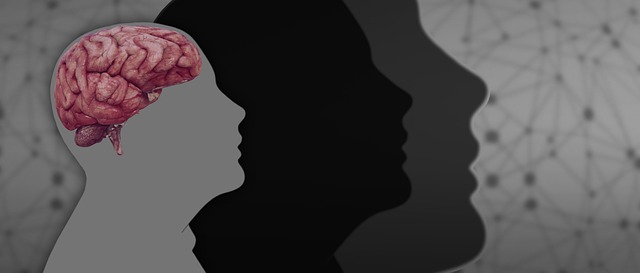In today's healthcare landscape, cultural competency is vital for delivering quality care, especially in pediatric therapy where understanding and respecting diverse spiritual-religious beliefs can build trust and improve treatment effectiveness. Training mental health professionals to be culturally sensitive equips them with tools to tailor care to each child's unique needs, address biases, and enhance patient outcomes. This holistic approach involves integrating faith-aligned practices, community outreach, and effective communication strategies for families from underrepresented backgrounds, ultimately fostering stronger therapeutic alliances.
Healthcare provider cultural competency training is crucial for delivering quality care in a diverse society. In this article, we explore essential aspects of cultural competency in healthcare, focusing on its impact on pediatric therapy. We delve into how spiritual and religious beliefs influence treatment, effective communication strategies, and building trust with diverse families. Understanding these factors enhances care, ensuring every child receives the best possible therapy, regardless of their background or beliefs. Key topics include training approaches and navigating spiritual-religious issues in pediatric healthcare.
- Understanding Cultural Competency in Healthcare: A Necessity for Quality Care
- The Impact of Spiritual and Religious Beliefs on Pediatric Therapy
- Training Approaches to Enhance Cultural Sensitivity Among Providers
- Strategies for Effective Communication and Building Trust with Diverse Families
Understanding Cultural Competency in Healthcare: A Necessity for Quality Care

In today’s diverse healthcare landscape, cultural competency is no longer an option but a necessity for delivering quality care. It involves understanding and respecting patients’ unique cultural backgrounds, beliefs, and values, which can significantly influence their health-seeking behaviors and communication preferences. For instance, when addressing therapy for children from various ethnic and religious backgrounds, healthcare providers must be adept at navigating spiritual-religious issues to foster trust and build strong therapeutic alliances.
The integration of mental health education programs designed with cultural sensitivity can equip providers with empathy building strategies and inner strength development techniques. These tools enable healthcare professionals to adapt their approaches, ensuring that every patient receives care tailored to their specific needs and context. Ultimately, this holistic understanding promotes better patient outcomes, enhances satisfaction, and strengthens the bond between caregivers and communities they serve.
The Impact of Spiritual and Religious Beliefs on Pediatric Therapy

In pediatric therapy, understanding and respecting a child’s spiritual and religious beliefs is paramount for building trust and fostering effective treatment. Children from diverse cultural and faith backgrounds bring their unique perspectives and experiences to therapy sessions, which can significantly impact their emotional well-being and response to treatment. Therapists must be culturally competent, recognizing that spiritual-religious issues may influence a child’s ability to express feelings, cope with challenges, and engage in therapeutic activities. By integrating these beliefs into the therapeutic framework, therapists can provide more holistic care tailored to each child’s needs.
Addressing spiritual and religious concerns in therapy for children is crucial, especially when dealing with complex cases involving trauma or emotional regulation difficulties. Services like Trauma Support can be adapted to incorporate mindfulness meditation practices, which have been shown to help children develop coping mechanisms that are aligned with their faith. This approach not only enhances the therapeutic experience but also encourages self-awareness and resilience, allowing children to navigate their emotions while staying true to their spiritual beliefs.
Training Approaches to Enhance Cultural Sensitivity Among Providers

Effective cultural competency training for healthcare providers involves diverse approaches to enhance sensitivity and understanding. One key method is incorporating self-awareness exercises that encourage reflection on personal biases, assumptions, and experiences. By fostering open dialogue and introspection, providers can develop a deeper appreciation for different cultural perspectives. These exercises are particularly beneficial in addressing implicit biases that may unconsciously influence clinical decision-making.
Additionally, integrating mental wellness components into the training curriculum empowers providers to recognize and manage their own emotional responses when interacting with patients from diverse backgrounds. This includes strategies for coping with stress and maintaining resilience in culturally complex situations. Training should also extend beyond individual awareness by promoting community outreach program implementation. Engaging with local communities, especially those with underrepresented or marginalized populations, allows healthcare providers to connect with cultural nuances at a broader level, ensuring more inclusive and compassionate patient care, especially when addressing spiritual-religious issues.
Strategies for Effective Communication and Building Trust with Diverse Families

In healthcare settings, effective communication and building trust with diverse families are essential components of cultural competency training. One strategy to enhance interaction is tailoring explanations to a family’s specific cultural background, language, and belief systems. For instance, when addressing spiritual-religious issues in therapy for children, healthcare providers should demonstrate respect and openness, allowing parents to express their perspectives without judgment. Incorporating culturally sensitive tools, such as visual aids or interpreters, can facilitate better understanding and create a safer environment.
Additionally, public awareness campaigns focused on mental health can play a pivotal role in promoting cultural competency. By highlighting the importance of open dialogue and emphasizing that diverse families’ experiences are valid, these campaigns foster an atmosphere of trust and support. Communication strategies should be inclusive, ensuring that all family members feel heard and valued. This involves actively listening, asking clarifying questions, and demonstrating empathy, which ultimately strengthens the therapeutic alliance.
Cultural competency training is a vital tool in enhancing healthcare services, especially when addressing spiritual and religious beliefs that influence pediatric therapy. By equipping providers with the right skills, we enable them to communicate effectively and build trust with diverse families. These strategies not only improve patient outcomes but also foster an inclusive environment, ensuring every child receives quality care tailored to their unique cultural and faith-based needs. This comprehensive approach is a game-changer in healthcare, promoting better understanding and stronger connections between providers and families from various backgrounds.












